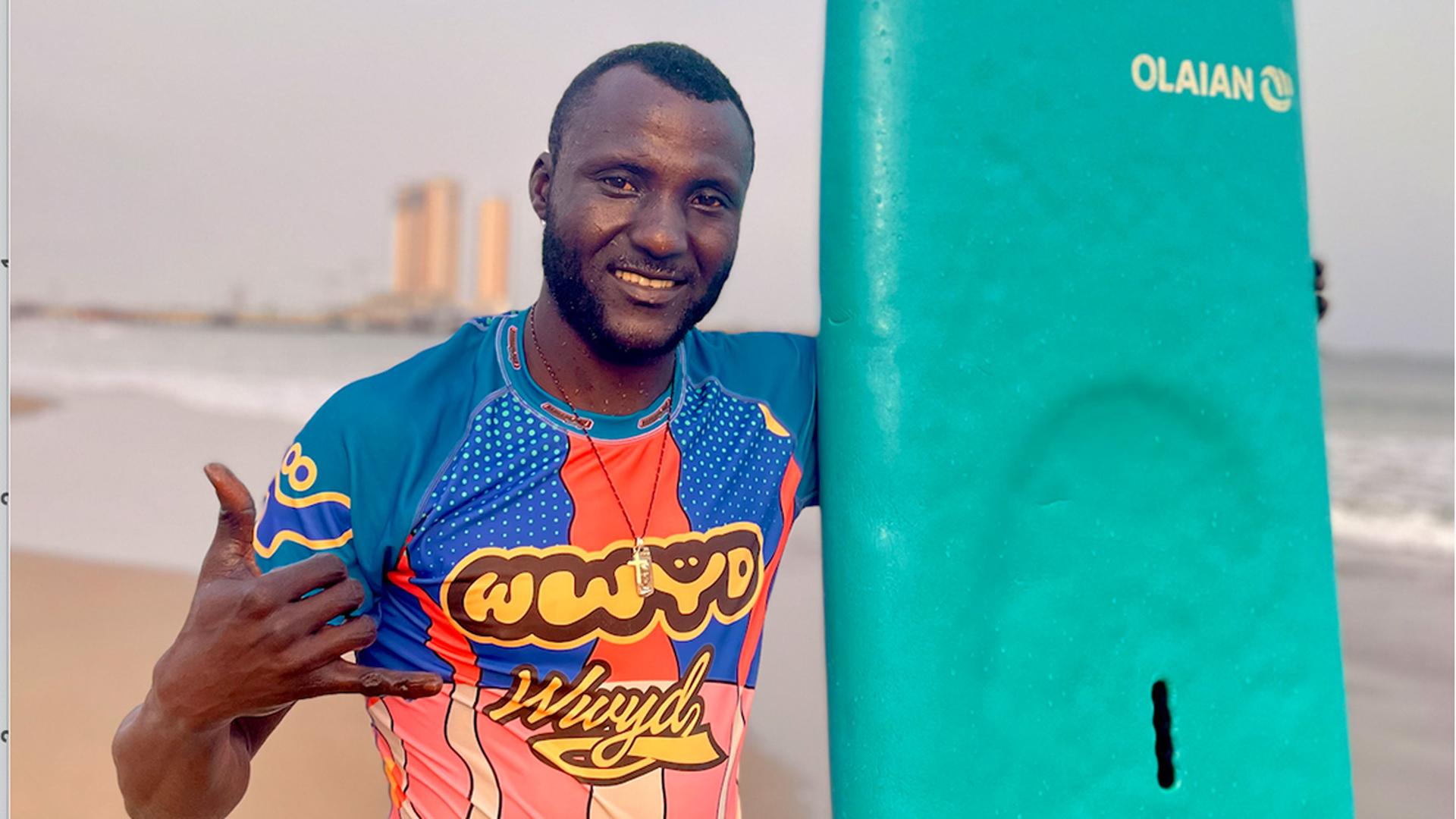Reaching the Tarkwa Bay Beach in the southernmost part of Lagos, Nigeria, requires a short boat ride.
The water is surprisingly warm on that side of the Atlantic Ocean compared to the eastern shores of the United States.
It’s also where 32-year-old surfing instructor Godpower Tamarakuro Pekipuma grew up, and where he first saw people surfing the waves. Lagos has seen growing interest in water sports recently, which also prompted Pekipuma to open his own surfing school.
“The first time I saw them surfing, I thought they were like Jesus Christ walking on top of water,” he recalled. “I was like wow, Jesus, I have to learn this sport.”
But Pekipuma said his parents wouldn’t allow it. They worried about him drowning. So, he snuck out of the house to ride the waves — it was addicting, he said.
Pekipuma’s parents’ fears weren’t unique. Despite having a long coastline, many Nigerians avoid the open water, especially with many of them not being able to swim.
But these days, in Lagos at least, Pekipuma said, the surfing community is growing fast.
In 2016, Pekipuma opened the GP Surfing School in Tarkwa Bay. Many of his clients are foreign tourists and affluent Nigerians returning home from abroad. But, Pekipuma said he has also taught dozens of children in the community how to surf for free.
“It makes you stay away from trouble,” he explained. “Because some of the kids, some of them are sitting at home smoking, taking drugs or [gambling], or fighting.”
He’s been teaching his son how to surf, too. Pekipuma’s own parents have also come around to the idea of him surfing for a living.
The recently formed Nigeria Surfing Federation plans to host a national surfing festival in April in order to determine who the country’s best surfers are.
Pekipuma said the hope is for them to compete in international surfing events, including the Olympics.
But, he added, they need resources and sponsorship to be able to achieve that. He hopes the Nigerian government will invest more in water sports and the country’s tourism industry.
“A lot of our kids here need to get the equipment, you know. They need to get the shelter for them to focus,” he said. “A lot of them sleep on the beach here, which isn’t fair.”
Related: Surf’s up!: Riding the world’s largest waves in Portugal’s Nazaré
